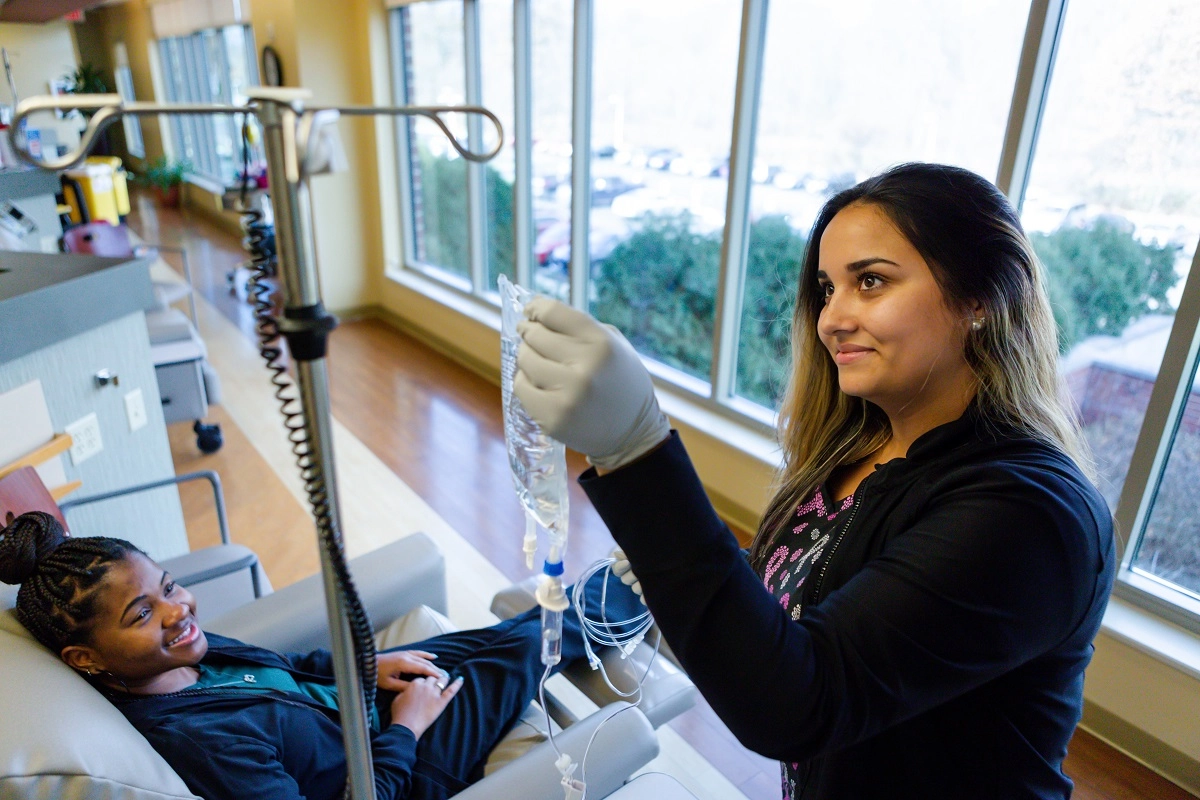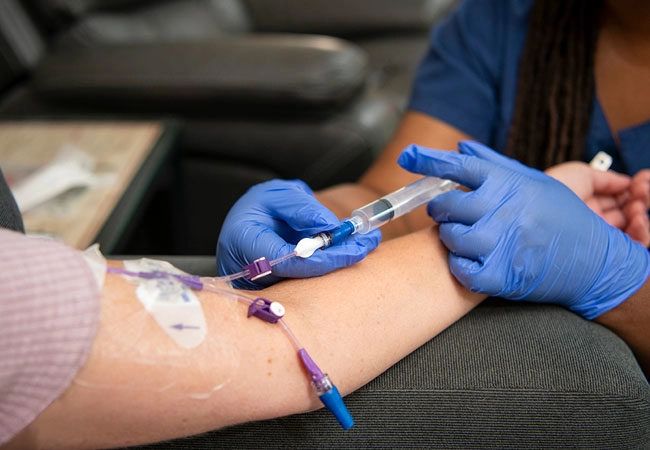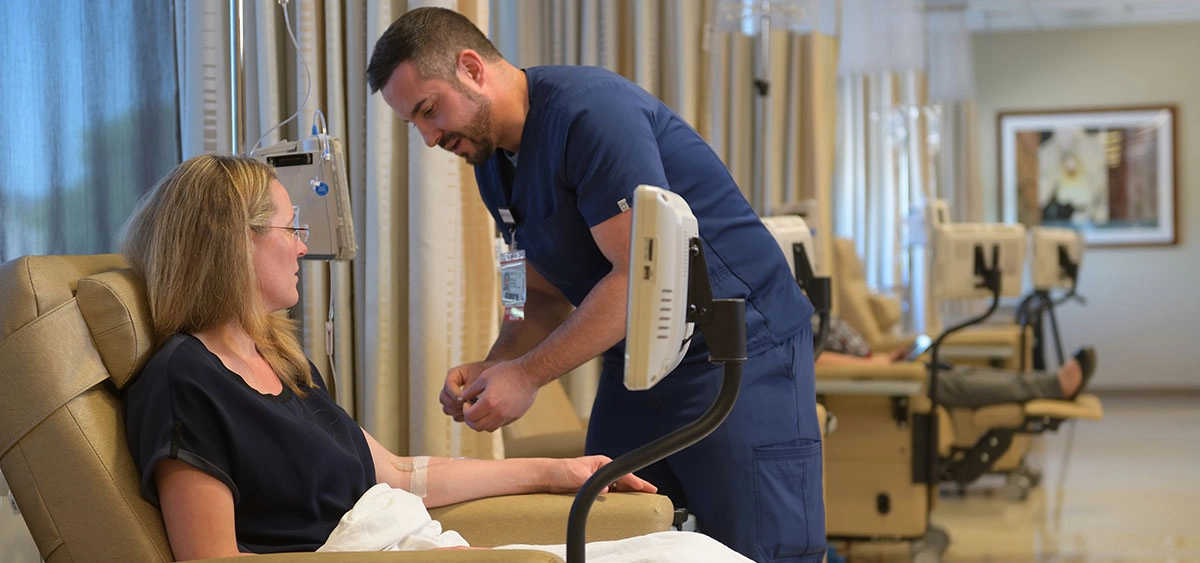Plaque psoriasis Infusion Therapy
Plaque psoriasis is a persistent skin condition that causes thick, red, scaly patches to form on the skin. These patches, called plaques, are often itchy and can be painful. They typically appear on the elbows, knees, scalp, and lower back, but can show up anywhere on the body. The plaques result from skin cells growing too quickly, building up on the surface instead of shedding normally. This condition tends to come and go in cycles, with periods of worsening (flares) and improvement. While not contagious, plaque psoriasis can be uncomfortable and affect a person's self-esteem. Treatment usually involves creams, light therapy, or medications to reduce inflammation and slow skin cell growth. Managing stress, avoiding triggers like certain foods or alcohol, and keeping skin moisturized can help control symptoms.

Symptoms

Symptoms
Symptoms of plaque psoriasis include:
- Red, raised patches of skin covered with silvery-white scales
- Dry, cracked skin that may bleed or itch
- Itching, burning, or soreness around the patches
- Thick, pitted, or ridged nails
- Stiff and swollen joints (if psoriatic arthritis develops)
- Plaques varying in size from small spots to large areas
- Skin flaking off in silver sheets (known as scaling)
- Skin feeling tight and uncomfortable, especially after bathing
- Plaques commonly appearing on elbows, knees, lower back, and scalp
- Patches sometimes joining together to cover larger areas
- Skin becoming inflamed and red around the edges of the plaques
- In severe cases, painful cracks or fissures in the skin
These symptoms can vary in severity and may come and go in cycles. Some people experience mild symptoms, while others may have more severe and widespread plaques.

Treatment options
Treatment options for plaque psoriasis include:
- Topical treatments:
- Corticosteroid creams or ointments
- Vitamin D analogues (like calcipotriene)
- Retinoids (such as tazarotene)
- Coal tar products
- Salicylic acid preparations
- Light therapy (phototherapy):
- UVB light treatment
- PUVA (psoralen plus ultraviolet A)
- Systemic medications:
- Methotrexate
- Cyclosporine
- Acitretin
- Biologic drugs:
- TNF-alpha inhibitors (like adalimumab, etanercept)
- Interleukin inhibitors (such as ustekinumab, secukinumab)
- Oral medications:
- Apremilast
- Newer oral treatments like deucravacitinib
- Moisturizers and emollients to reduce dryness and scaling
- Lifestyle changes:
- Stress management techniques
- Avoiding triggers like alcohol and smoking
- Maintaining a healthy diet and weight
- Alternative therapies:
- Aloe vera
- Fish oil supplements
- Dead Sea salts
The choice of treatment depends on the severity of psoriasis, its location on the body, and individual patient factors. Often, a combination of treatments is used for best results.

Living With
Plaque psoriasis is a long-lasting skin problem that causes red, scaly patches. These patches often show up on elbows, knees, and scalp, and can be itchy or sore. It happens when your body makes skin cells too fast, so they pile up instead of falling off. While there's no cure, many treatments can help manage it. These include special creams, light therapy, or pills. Stress, certain foods, or weather can make it worse, so learning what triggers your psoriasis is important. It's not catching, so you can't spread it to others. Keeping your skin moist, avoiding harsh soaps, and finding ways to relax can help you cope day-to-day. Remember, lots of people live with psoriasis, and with the right care, most can keep it under control.
Meet our Infusion Specialists
Jalal Thwainey M.D.
Medical Director
Emilie Wojcik, N.P.
Director of Clinical Services
For Provider
Simplify patient referrals and offer advanced treatment options with our infusion partnership program.
For Patient
There may be a better way to manage your condition – explore infusion therapy.





